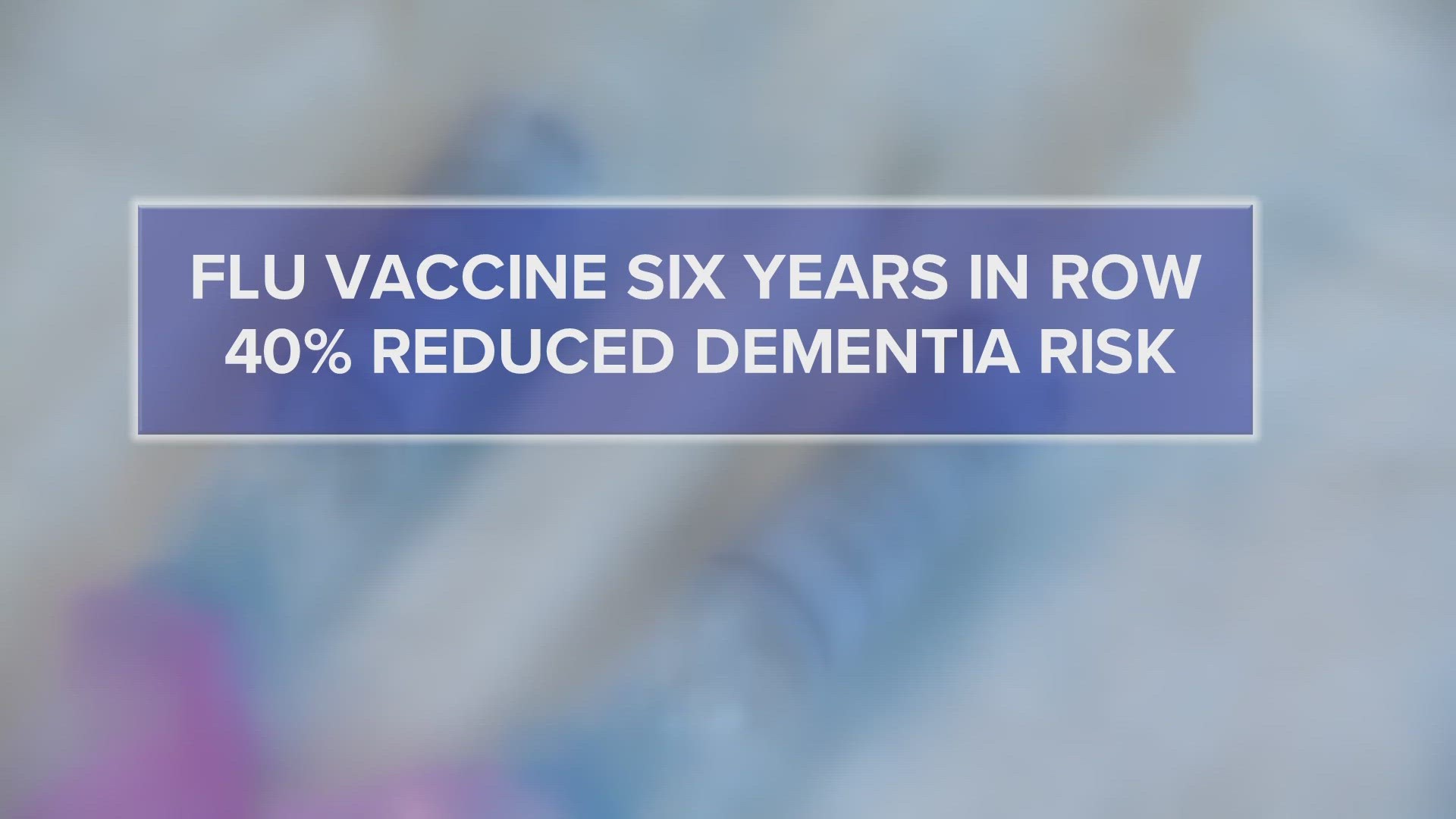CLEVELAND — Several studies are finding a correlation showing that those who are vaccinated seem to be less likely to develop dementia.
"But it's not just the flu shot; it's several other vaccines that they looked at," Dr. Robert Salata, Medical Director of Infection Control and Prevention at University Hospitals Cleveland Medical Center, says.
According to Salata, studies also show vaccines for shingles, pneumonia, and the T-Dap vaccine for tetanus, diphtheria and pertussis display a similar correlation. What science hasn't been able to figure out is why this is happening.
One theory may be because they work at fighting off the diseases they're targeted to prevent.
"Many of these infectious agents are triggers for dementia," Salata explained.
Another theory is they may be a boost to the immune system.
"And that might be associated with lower development of dementia, which is related to the development of amyloid plaques in the brain," Salata added. "Perhaps the vaccine and the immune response prevents that from happening."
One study followed more than 935,000 people over eight years, all with similar backgrounds. Some were vaccinated, others were not, and researchers found those who received the flu shot for three consecutive years had a 20% reduced dementia risk over four to eight years, and those who had the shot for six years in a row doubled that reduced risk to 40%.
While the findings are positive and may push some to go get their flu shots and updated vaccines, it will take some time before science can tell us exactly why this is occurring. Studies we reviewed include:

